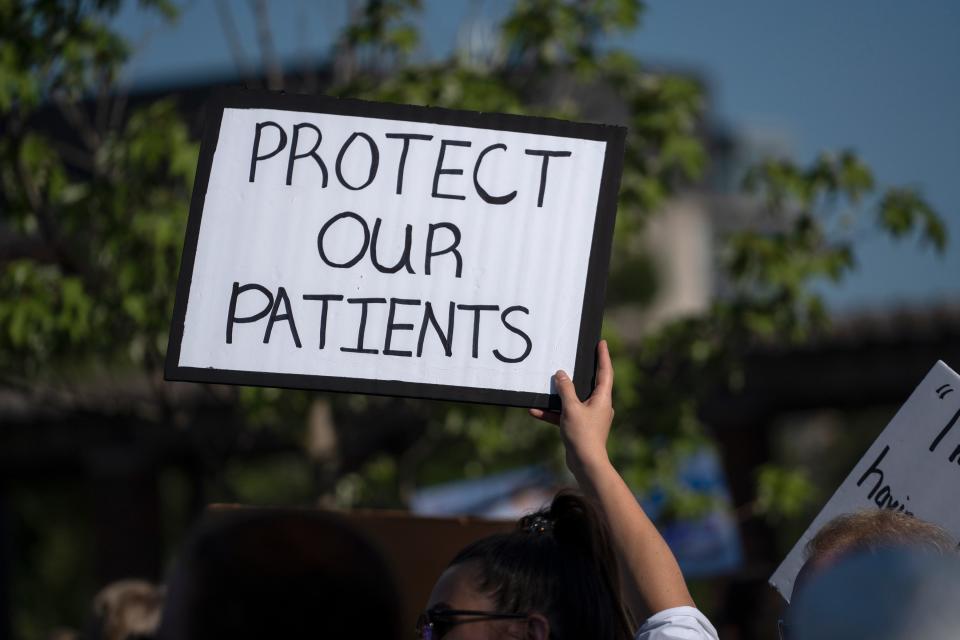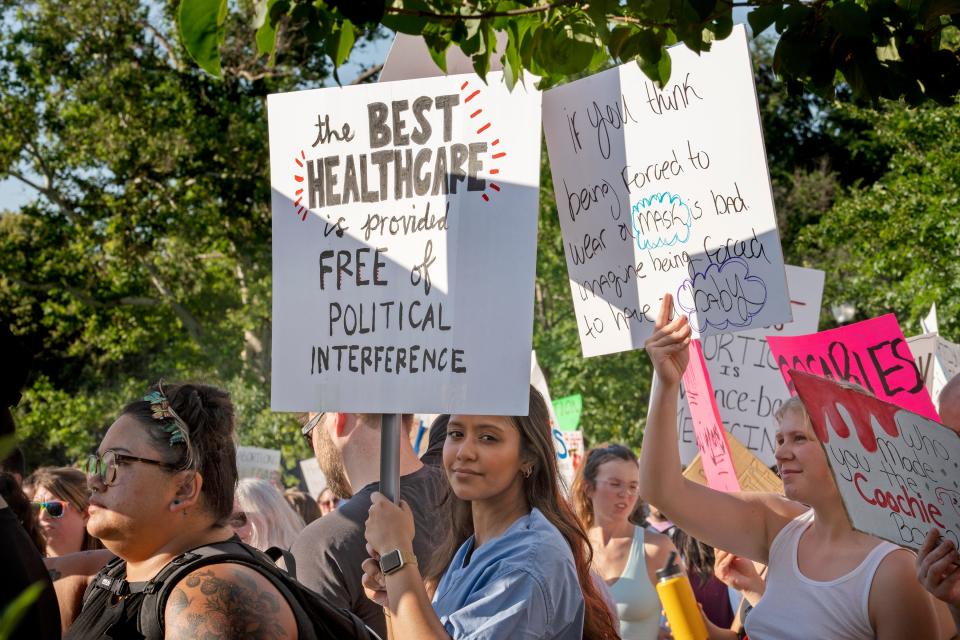Op/Ed: Reproductive autonomy required if legislators want to save Hoosier babies
The recent Supreme Court decision in Jackson Women’s Health Organization vs. Dobbs has returned the issue of legal abortion access to states. The decision will almost certainly lead to a vote in the Indiana Legislature to ban abortion, and it is unclear whether the law will include exceptions for rape, incest and the health or life of the mother. An abortion ban in Indiana will absolutely lead to increased maternal health complications and deaths as pregnant people are forced to carry pregnancies to term or die trying. Carrying a pregnancy to term results in 14 times greater risk of death than having an abortion. Let that sink in. More than 10-fold higher risk of dying from things like strokes, blood clots, hemorrhage and infection, almost all of which are completely preventable. When access to legal abortion care is restricted, the most vulnerable people, including low income, those with chronic health conditions, LGBTQ+ populations and Black and indigenous populations will be most at risk.

Legislation banning abortion care — effectively putting more pregnant people at risk — is especially egregious in our state, which is ranked among the highest in maternal and infant mortality in the country. In their most recent report, the Indiana Maternal Mortality Review Committee found that 87% of pregnancy-associated deaths were preventable and many were attributed to substance use disorder. Although Indiana lawmakers often talk about the importance of reducing maternal and infant mortality, rarely have they proposed interventions to impact the root causes of these deaths — poverty, health care access disparities, including addiction treatment, management of chronic health conditions and contraception to prevent unintended pregnancy in the first place.
They also never talk about increasing support for women and families, but this will be particularly important now. Meaningful reforms like investments in safety net programs (food stamps, affordable housing and child care, job training, paid family leave), increased funding for addiction and mental health treatment and resources, expanded access to health care and more funding for mental health resources. These reforms share a common feature — increasing autonomy for people who can become pregnant.

The concept of supporting people’s autonomy is inherent to the reproductive justice framework, which was developed by women of color in the 1990s. This framework is grounded on the human right to maintain personal bodily autonomy, to have or not have children and to parent children in safe and sustainable communities. The reproductive justice framework solidifies the connection between bodily autonomy and maternal health and outcomes.

We won’t improve maternal mortality until we recognize the autonomy of the pregnant person. That means thoughtful legislation to increase access to comprehensive health care, including abortion care. We urge Hoosiers to call their legislators ask them to vote against any further abortion restrictions. This legislation will only create a more dangerous environment for pregnant people in our state.
Alison Case, medical doctor
Tracey Wilkinson, medical doctor, Master of Public Health.
This article originally appeared on Indianapolis Star: To save babies, Indiana legislators must choose reproductive autonomy

